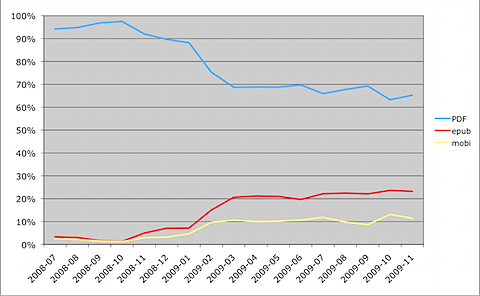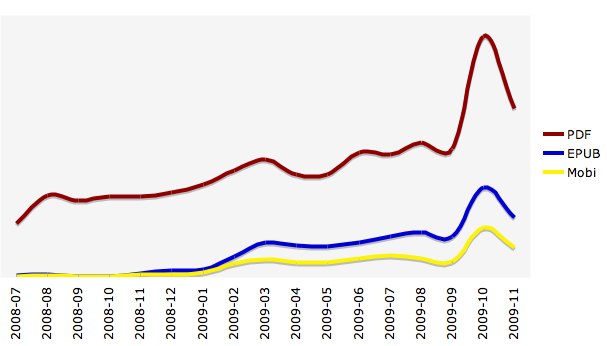December 19th, 2009
Gosh I do write an awful lot about eBooks, but it is the flavor-of-the-year, not just for book publishers of course, but for readers (and publishers) everywhere. Always controversial, it never fails to “make good copy,” as they used to say in the newspaper business.
O’Reilly, the company; Tim O’Reilly, the founder; Andrew Savikas, a leading spokesperson and technologist; along with a host of other very bright staff, keep that firm at the forefront of all things important in digital publishing. They need to make money, and I should imagine they make a great deal, but they’re also extremely generous in sharing their knowledge through blogs, conferences, interviews and the like.
I think that a (free) subscription to O’Reilly’s “Tools of Change for Publishing” blog is an absolute must, regardless of where you make your home in the publishing food chain. It’s always full of provocative data and observations that all can likely extrapolate great value.
Like many veteran analysts of electronic publishing, I’m a great advocate for standards. They rarely cause harm, and generally are a force for the good of all users (if not for some selfish vendors who fight them).
Speaking of selfish vendors, Amazon has continually tried to push a proprietary eBook standard onto the publishing industry, attempting a range of strong-arm methods to enforce the standard if publishers wanted to get prized Amazon eBook distribution. I always knew that this would pass, and the evidence from O’Reilly (and others) is that the industry is finally fighting back and supporting the broad eBook standard, EPUB. Sony supports it, Barnes and Noble supports it, Adobe supports it: Amazon, your brief time in the sunlight is drawing to a close. You now support PDF (ouch). When will you become a good corporate eBook citizen and embrace EPUB? Very soon I predict.
A recent blog entry on O’Reilly illustrates what’s happening there, and I believe that what’s happening at O’Reilly will soon be what’s happening across the industry.
This first chart, based on “relative volume,” is a trifle confusing as Mobi somehow disappears:

This second chart, based on “relative volume, rather than percentage,” is more clear, although it does raise a question as to why all formats are declining. I could not find the explanation.

So…there you have…something.
I’m sticking with my prediction. Amazon will have no choice but to capitulate and support EPUB, and thereby stop trying to pretend that it is Heaven’s designated vendor for all things eBook.